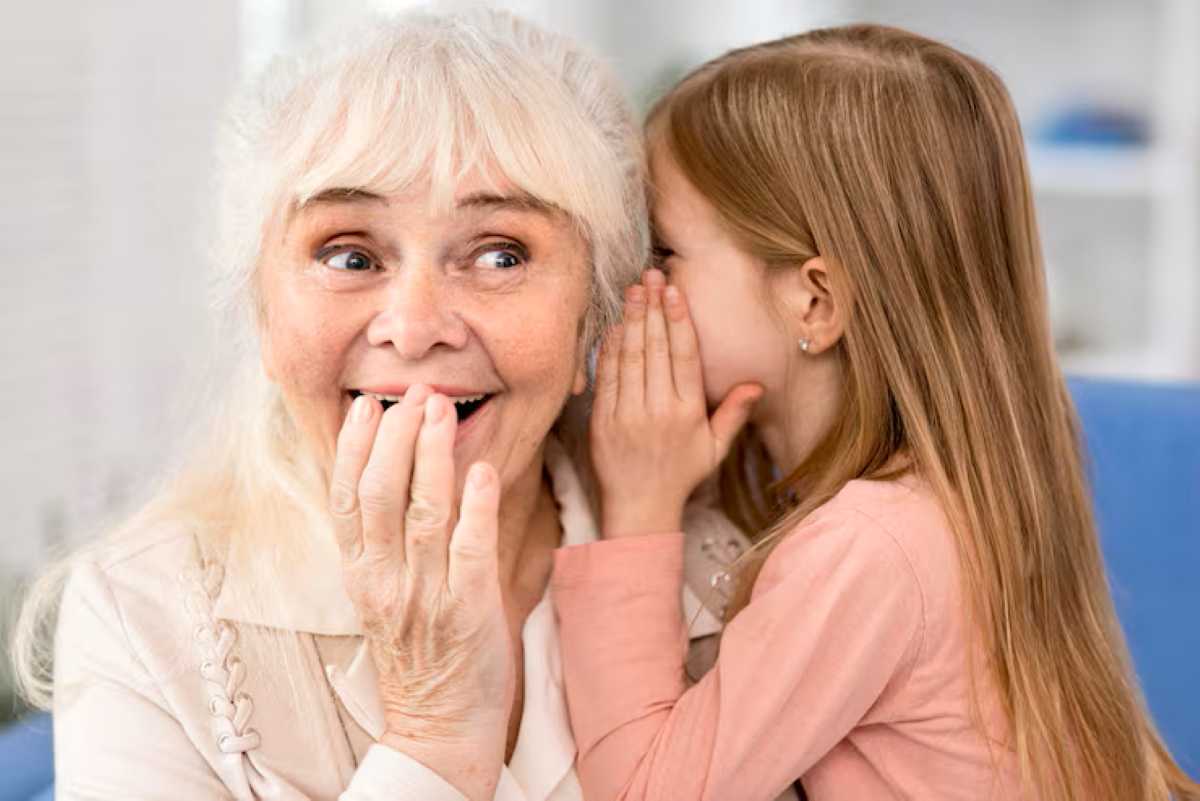The longest one is only nine words like but can make a significant impact.
Forget big classrooms and long lectures—learning starts the moment a child is born.
“Children are like sponges, constantly soaking up what they hear,” says Dr. Crystal Saidi, Psy.D., a licensed psychologist with Thriveworks.
That’s why parents, grandparents, and other close caregivers are a child’s very first teachers. The words you choose—and the way you say them—can shape how a child feels about themselves and the world around them.
“Words from a parent or caregiver carry so much weight,” Dr. Saidi explains. “A child’s sense of who they are begins with how their parents or caregivers speak to them. Those words set the tone for how they see the world, others, and most importantly, themselves.”
Now, don’t feel pressured—there’s no such thing as a perfect parent or grandparent. We all make mistakes.
But the good news is, adding just a few short, loving phrases into your everyday conversations can make a big difference. The best part? The longest one is only nine words.
1. “I love you.”
These three little words might seem simple, but they hold so much power.
Saying “I love you” every day helps children feel safe, valued, and deeply cared for. It also builds their confidence and teaches them how to express love to others. Kids learn by watching us, so the more they hear and feel love, the easier it becomes for them to share it, too.
2. “It’s OK to feel that way.”
Not every behavior is okay, but every feeling deserves to be seen and respected.
When kids face big emotions like fear, sadness, or frustration, reminding them that it’s okay to feel that way can mean the world. It tells them their feelings are real and important.
For example, stomping your feet when you don’t want to leave the park might not be the best choice—but feeling disappointed about playtime ending is completely valid. When we let kids know it’s okay to feel sad, we teach them that all emotions are normal and that they’re safe sharing them with us.
3. “I’m sorry.”
Every parent or grandparent makes mistakes—it’s just part of life. What matters most is how we handle those moments. Saying “I’m sorry” may feel hard, but it’s one of the most powerful things you can do.
When we apologize, we show children that it’s okay to admit when we’re wrong. It teaches them honesty, accountability, and humility. More than that, it builds trust and respect. Kids learn that love doesn’t mean being perfect—it means being real and willing to make things right.
4. “It’s OK to make mistakes. That’s how you learn.”
None of us are perfect—not grown-ups, not kids. And that’s perfectly okay.
When a child slips up, it’s a chance to encourage them, not shame them. Reminding them that mistakes are part of learning helps them feel safe enough to try again. It also builds resilience, showing them that every misstep is just a stepping stone to growth.
5. “I’m so proud of you.”
Kids don’t always recognize pride just by looking at our faces. That’s why it’s so important to say it out loud: “I’m so proud of you.”
Hearing these words fills children with confidence and helps them see themselves the way we see them—capable, special, and worthy of love. Even small wins deserve to be celebrated, because every step forward matters.
6. “I believe in you.”
Few words mean more to a child than knowing someone believes in them.
When you say this, you’re telling them, “I trust you. I know you can do it—even if it feels hard.” It encourages them to keep trying, whether they’re learning a new sport, practicing music, or working through tough homework. These words remind kids they’re never alone—someone they love believes in their potential.
What not to say to a child
There isn’t just one kind of statement to avoid—there are several. Harsh criticism, name-calling, comparing kids to others, and using threats can all do real harm.
Another big one? Dismissing a child’s feelings. Phrases like “Stop crying” or “It’s not a big deal” may seem small, but they can make a child feel like their emotions don’t matter. Instead, showing empathy and understanding helps children feel safe, valued, and heard.
Love Being a Grandma?

Join 12,570+ grandmas who wake up to a cheerful, uplifting email made just for you. It’s full of heart, sprinkled with fun, and always free. Start your mornings with a smile—sign up below! ❤️

